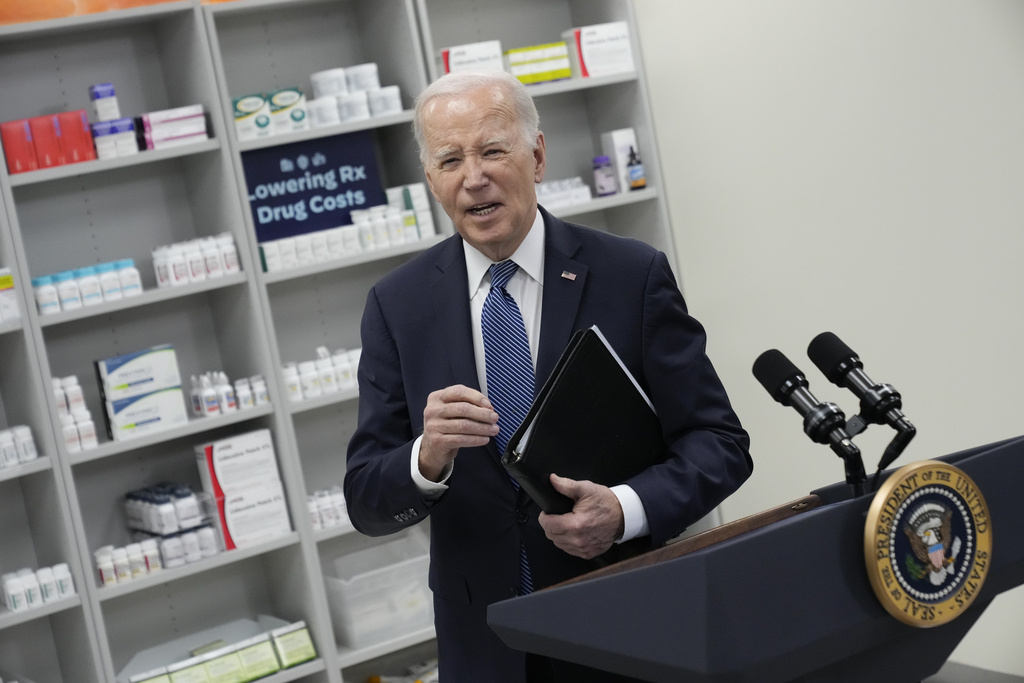The Biden administration said Thursday that drug price negotiations will knock hundreds of dollars — in some cases thousands — off the list prices of 10 of Medicare’s most popular and costliest drugs.
The discounts, agreed to after months of negotiations with drug manufacturers, range between 38% and 79% on the medication’s list price, which is the cost of medication before discounts or rebates are applied — not the price people actually pay for prescriptions.
Medicare spent $50 billion covering the drugs last year and taxpayers are expected to save $6 billion on the new prices, which do not go into effect until 2026. Older adults could save as much as $1.5 billion in total on their medications in out-of-pocket costs. Administration officials released few details about how they arrived at those calculations.
The newly negotiated prices will impact the price of drugs used by millions of older Americans to help manage diabetes, blood cancers and prevent heart failure or blood clots. The drugs include the blood thinners Xarelto and Eliquis and diabetes drugs Jardiance and Januvia.
It’s a landmark deal for the Medicare program, which provides health care coverage for more than 67 million older and disabled Americans. For decades, the federal government had been barred from bartering with pharmaceutical companies over the price of their drugs, even though it’s a routine process for private insurers.
“For years, millions of Americans were forced to choose between paying for medications or putting food on the table, while Big Pharma blocked Medicare from being able to negotiate prices on behalf of seniors and people with disabilities,” President Joe Biden said in a statement. “But we fought back -– and won.”
The drug deals will become a focal point for Vice President Kamala Harris’ presidential campaign, especially since she cast the tiebreaking vote to pass the law. She will join Biden on Thursday to announce the drug prices, in what will be their first joint speaking appearance since she replaced him at the top of the Democratic ticket, as they both struggle to persuade voters that costs will trend down after years of above-normal inflation.
Harris is set to release part of her economic agenda on Friday in North Carolina, where she plans to detail other ways to help cut costs and boost incomes for the middle class.
The pair last appeared publicly together to welcome back to the U.S. Americans detained in Russia who were freed as part of a massive prisoner swap earlier this month.
Powerful drug companies unsuccessfully tried to file lawsuits to stop the negotiations, which became law in 2022, when a Democratic-controlled Congress passed the Inflation Reduction Act (IRA), overhauling several Medicare prescription drug regulations. But executives of those companies have also hinted in recent weeks during earnings calls that they don’t expect the negotiations to impact their bottom line.
Pharmaceutical officials blasted the news from the White House, saying it will spread health care costs to taxpayers in other ways, including their Medicare premiums.
“The administration is using the IRA’s price-setting scheme to drive political headlines, but patients will be disappointed when they find out what it means for them,” Steve Ubl, the president of the Pharmaceutical Research and Manufacturers of America (PhRMA). “The ironically named Inflation Reduction Act is a bad deal being forced on American patients: higher costs, more frustrating insurance denials and fewer treatments and cures for our loved ones.”
Next year, the Department of Health and Human Services can select another 15 drugs for price negotiations.
(AP)












One Response
Will this benefit consumers, or insurance companies? Most people do not buy drugs directly from drug manufacturers, but rather they get them through a complex set of insurance companies who in return for premiums, provide drugs at a discount to a “list” price. If the insurance companies are enabled to reduce the cost of those discounts (due to government intervention) it will be very healthy for those companies, but not matter so much to the end user.